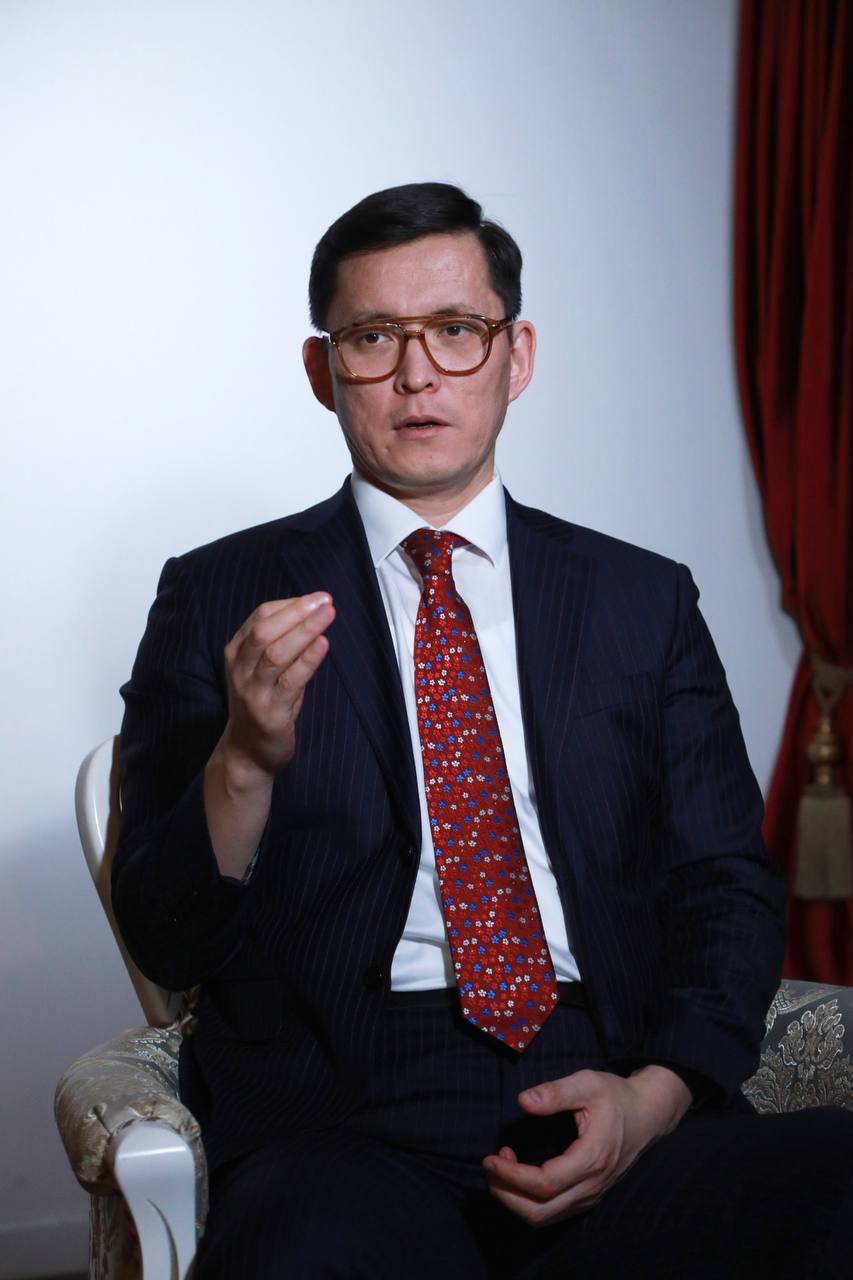ASTANA – Similar to any emerging technology, blockchain and digital mining, along with the associated innovations, have rapidly become global trends. In just a decade, this field has evolved into one of the most widely discussed trends worldwide, and Kazakhstan is no exception, said Dauren Karashev, chairman of Kazakhstan’s Association of Blockchain Technologies, in an interview with The Astana Times.

Dauren Karashev Chairman of the Managing Board of Kazakhstan Association of Blockchain Technologies. Photo credit: The Kazakhstan Association of Blockchain Technologies.
In its early stages, blockchain and mining garnered support from the Kazakh authorities. To provide some clarity within this new technological landscape and burgeoning industry, digital mining was officially regulated as part of amendments made on July 25, 2020, to the law on informatization.
“The Kazakhstan Association of Blockchain Technologies played a leading role in advocating for this law. At the time, it was crucial to provide legal support for advanced technologies, not only in Kazakhstan but also globally. While drafting these laws, it was necessary to strike a balance between their effectiveness and legitimacy, with a focus on rational adjustments based on accumulated experience,” said Karashev.
“Up to 2021, the industry faced minimal regulatory pressure from Kazakhstan’s authorities since it was still relatively young. However, as with any thriving industry attracting significant investments, some unscrupulous market participants sought to exploit the situation, circumventing established rules,” he added.
Karashev pointed out that these “gray miners” utilized Kazakh electricity without paying, evaded taxes or paid them at reduced rates, and provided false information about their activities. Their actions and the scale of their operations strained the country’s already fragile energy system, necessitating the introduction of clear regulatory mechanisms.
In response to these local vulnerabilities, the association proposed preventive measures, including the introduction of a minimum charge rate. This was deemed necessary due to the industry’s close connection with electricity.
“As mentioned earlier, there was a period when legislation lacked effective mechanisms to combat ‘gray mining.’ The prevalence of ‘gray mining’ had grown significantly, and the power grid reached its capacity limit. To alleviate this burden on the energy system, the fee rate was increased to protect social groups from power shortages,” said Karashev.
Karashev noted that after a thorough market analysis, the law on digital assets was adopted in Kazakhstan on Feb. 6, 2023.
“At the initiative of our association, this law was equipped with specific mechanisms designed to curb illegal ‘gray mining.’ It also includes provisions ensuring transparent taxation, specifically in the form of corporate income tax applied to digital mining. The law sets out clear and straightforward licensing requirements for digital mining,” he said.
The law includes a mining pool tool that transparently discloses the real income of Kazakh digital miners. The mining pool itself is also subject to taxation in Kazakhstan.
“However, the modern law on digital assets made obsolete the tax rules developed during the transitional period when legislation lacked clear measures. Our association is working to eliminate the above-mentioned norms that have lost their relevance,” said Karashev.
He emphasized that the current legislative investment climate for the blockchain and mining industry in Kazakhstan can be confidently described as positive.
“This is due to our established dialogue with regulators and the absence of bureaucracy, a challenge even the most developed countries currently face,” he said.
This perspective is not limited to local experts but is also shared by foreign business leaders, including Tim Draper, a prominent American venture capital investor, who has acknowledged Kazakhstan’s potential to become a regional hub for providing computing services, contingent on the competent development of data centers.
“The association is dedicated to advancing the blockchain technology industry in the country, offering its members legal, organizational, informational, analytical, methodological, and advisory support. Its mission is to strengthen the country’s economy, enhance its reliability and sustainability, and stimulate entrepreneurial activity,” said Karashev.
The association has translated four books about blockchain technology into the Kazakh language and conducts training sessions for interested organizations, including training for the Turkic-Speaking Journalists Foundation and the World International Press Association (WFPA).
Karashev mentioned that they are currently working to revise certain provisions of the tax code related to digital mining.

